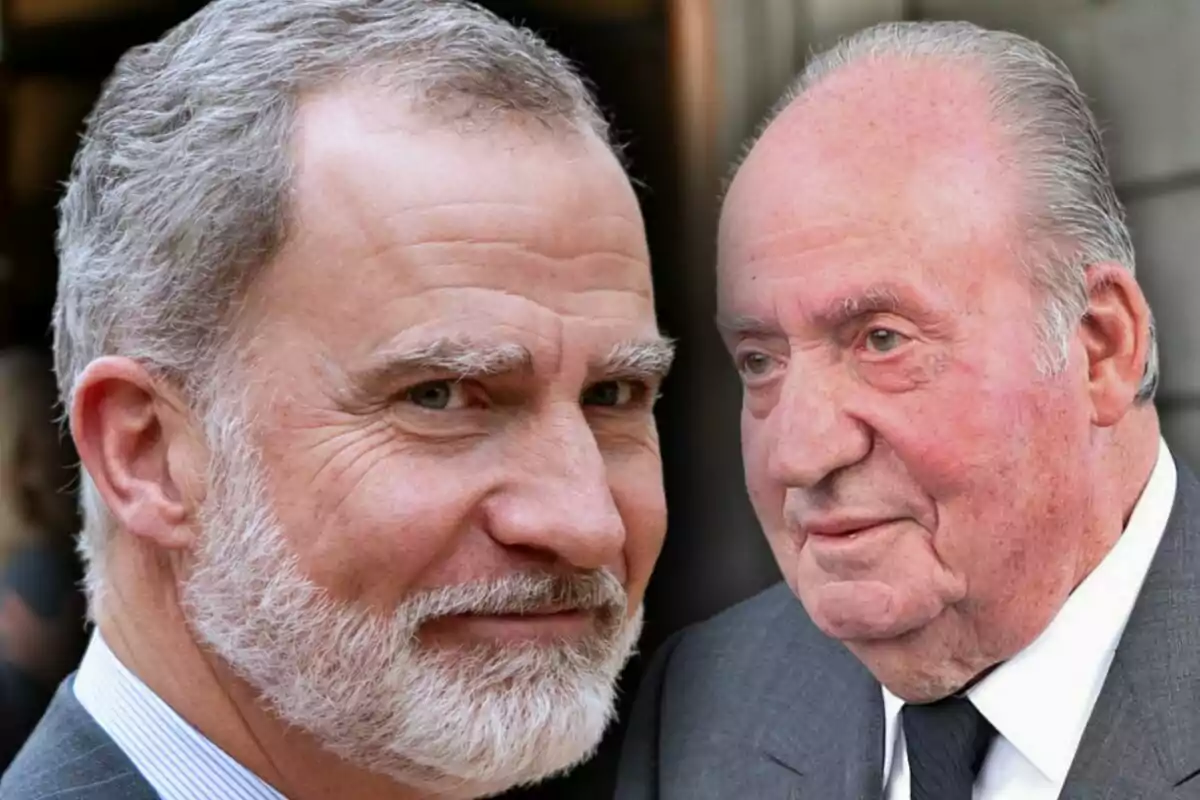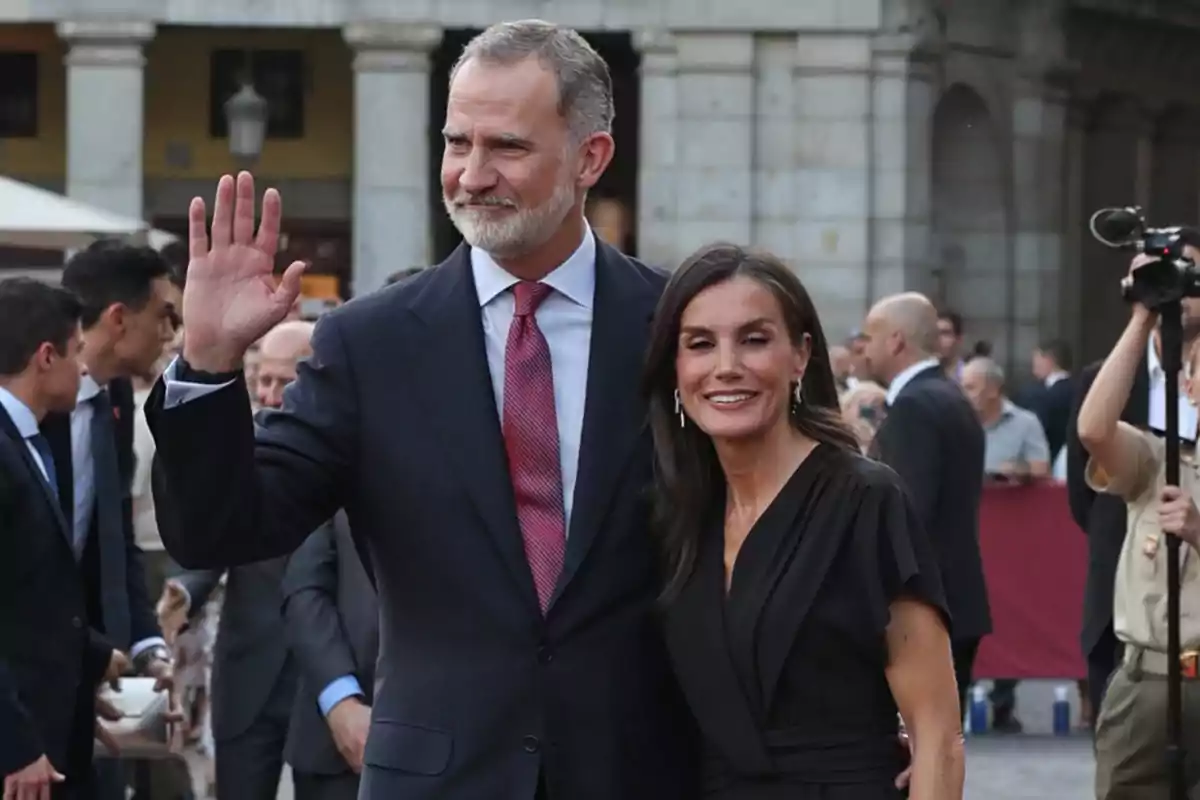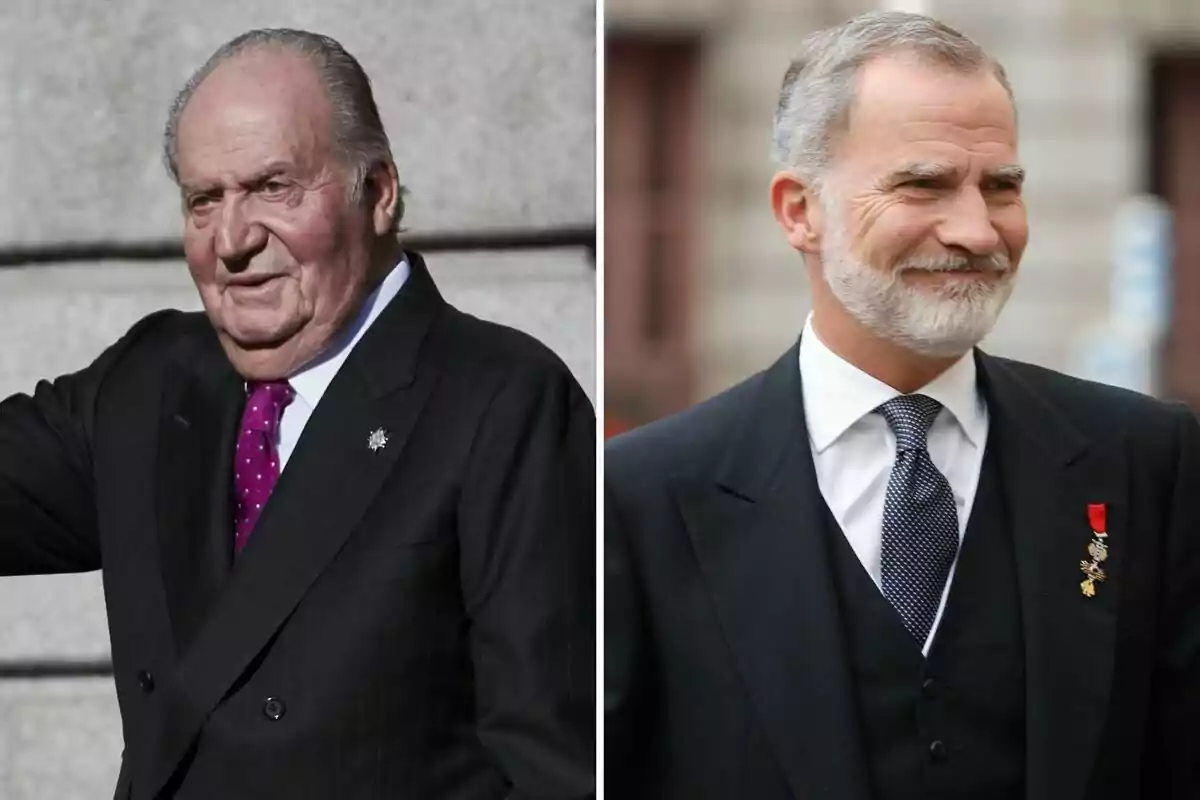
180º turn for King Felipe and Juan Carlos I: it's time and everyone has been able to see it
The public have seen with their own eyes something very important that changes the idea people had of them
For years, the image of King Felipe has been built with a very clear goal: to draw a firm line of separation from his father, Juan Carlos I. Since he ascended to the throne, he has wanted his reign to be seen as clean, transparent, and far removed from the scandals that tarnished the final years of his predecessor's. However, in recent days, a surprising change has occurred.
A public, notable, and symbolic gesture has made it clear that, at least in one key matter, the current monarch is following in the previous one's footsteps. The defense of the European project, one of the great banners of the now emeritus, is now also a cause his son embraces with conviction.

Important change: King Felipe does follow in Juan Carlos I's footsteps in a very specific way
The recent commemoration of the 40th anniversary (40º) of the signing of Spain's Accession Treaty to the European Communities was the setting where this 180-degree (180º) turn was staged. At this institutional event, King Felipe presided with solemnity and prominence, making it clear that Europe remains an essential pillar for the Spanish Crown.
During his speech, he left no doubt about his vision of Spain's role in the European Union. His words resonated clearly: "Spaniards are freer within the European Union."
With this phrase, the current king made his pro-European stance clear, and he also evoked the vision that Juan Carlos I once defended. He was the one who signed Spain's entry into Europe in 1985 and who, as the country's first monarch in democracy, addressed the European Parliament. He did so, thus consolidating a path his son now resumes.
It is a coincidence too significant to go unnoticed. Foreign policy, especially the European project, is one of the few areas in which Felipe has chosen not to break with his father's legacy. On the contrary, he has decided to continue that path, reinforcing the importance of Europe in the institutional narrative of the Spanish monarchy.
A legacy that transcends generations in the royal family
The figure of Juan Carlos I has been called into question due to the multiple financial and personal scandals that have tainted his reputation. In response, his son adopted a firm stance: reduction of his father's allowance, removal from his institutional agenda, and a speech of ethical renewal focused on setting an example.
However, the event marking the 40th European anniversary has made it clear that not all the legacy has been rejected. There are values and historic milestones that the husband of Queen Letizia claims with pride, and Spain's membership in the European Union is one of them. Charles Powell, executive vice president of the Network of Studies on Contemporary Monarchies, has also acknowledged this in statements to the newspaper El Mundo.
He has stated: "King Felipe follows a path defined and marked by his father. Spaniards are the most pro-European, and Felipe understands that the European level protects us when the other levels don't work."
These words confirm that, despite the effort to distance himself in many respects, the current monarch knows the historical weight that certain moments of the previous reign have for the country. Far from rejecting it completely, he chooses to integrate it into an institutional narrative that reinforces Spain's stability, belonging, and unity within the European framework.

Another symbolic element of this continuity is found in the tone and content of his speeches. Felipe VI speaks of Europe not only as a political environment, but as a guarantee of freedom, rights, and democratic cohesion. This is a vision also shared by his father during the years of transition and opening to the world.
This 180-degree (180º) turn in the image held of the two kings is significant. It shows that there is not only distance and disparity in their way of understanding their position. There is a remnant of common thought in a very specific aspect.
Moreover, this attitude serves as a bridge between generations. It is not about imitation, but about continuing what worked and was well regarded by citizens.
In a global context of uncertainty and with nationalist tensions within Europe, the fact that the head of state reaffirms his commitment to the European Union is not an empty gesture. It is a declaration of principles that seeks to position the monarchy as a guarantor of stability and international vocation.
More posts: